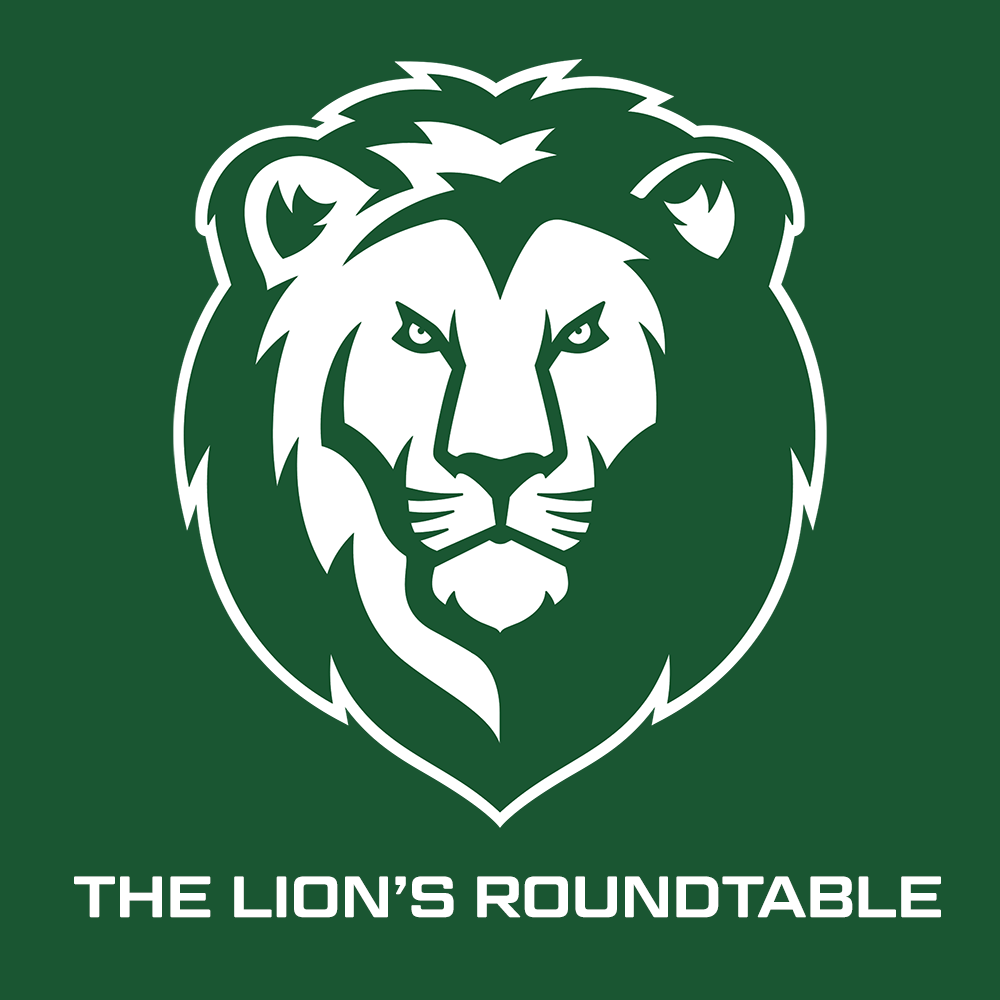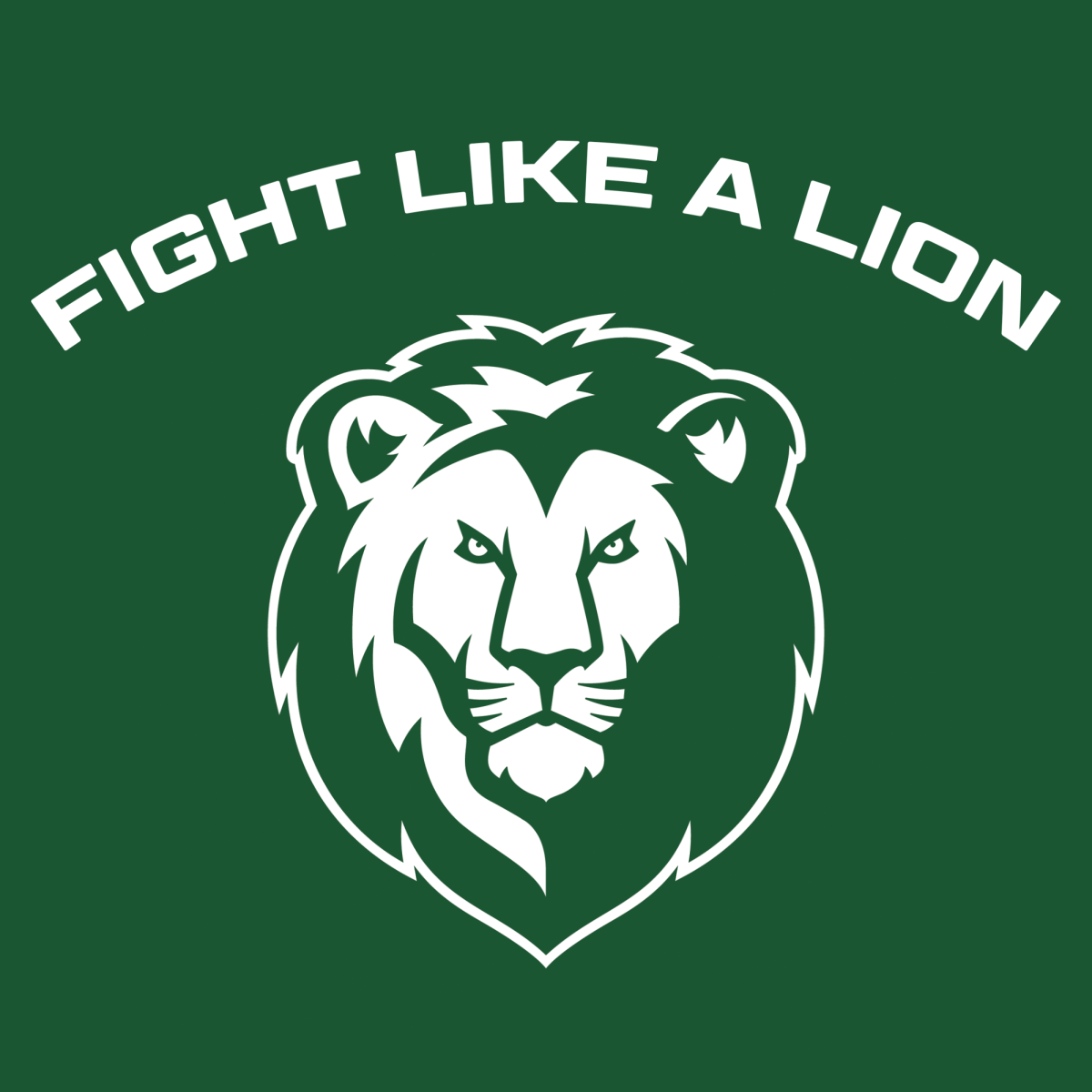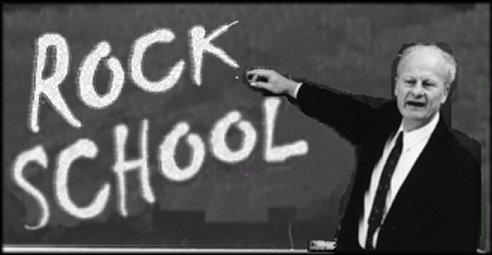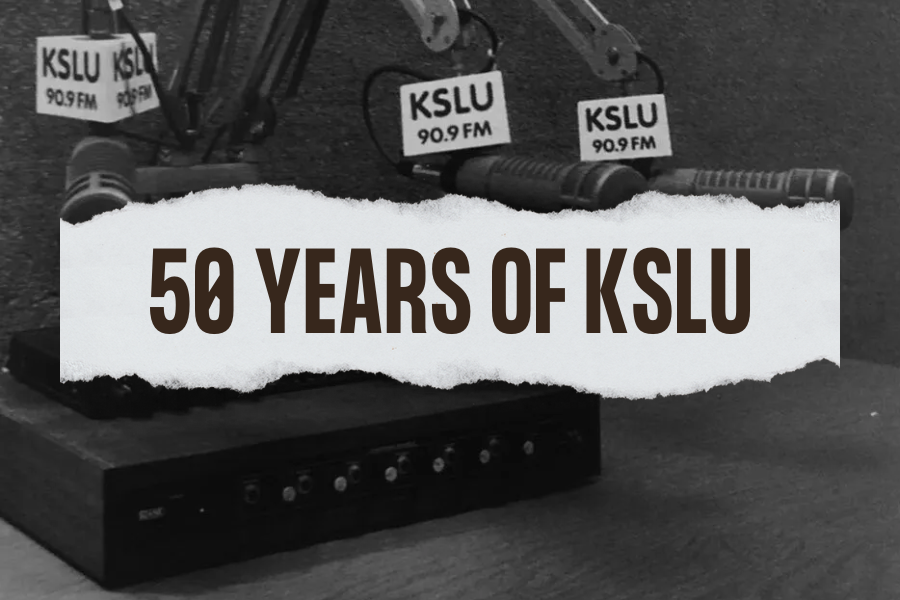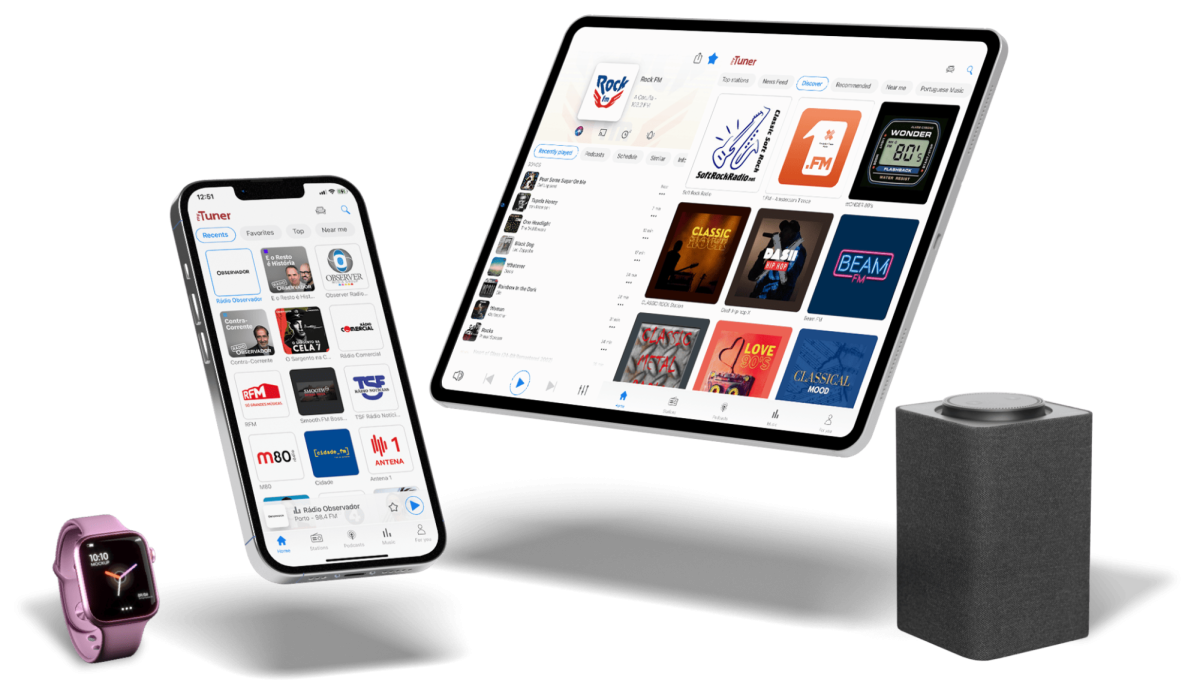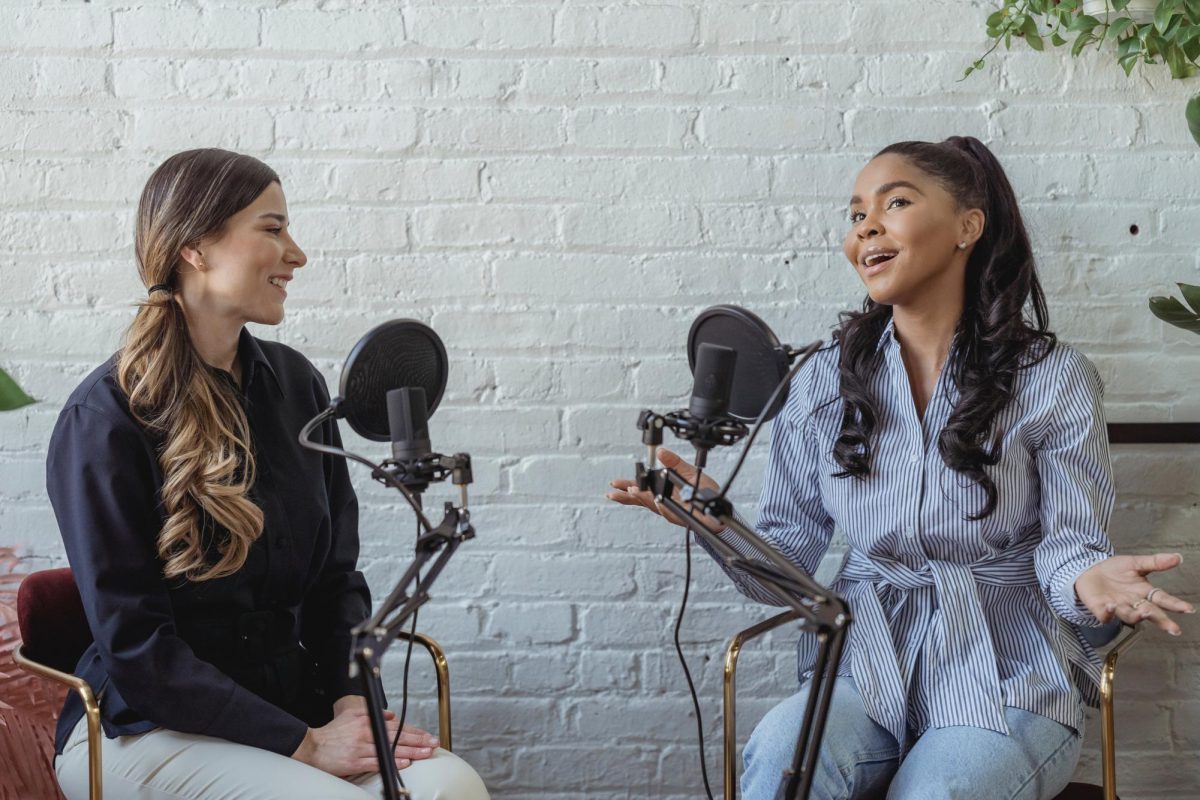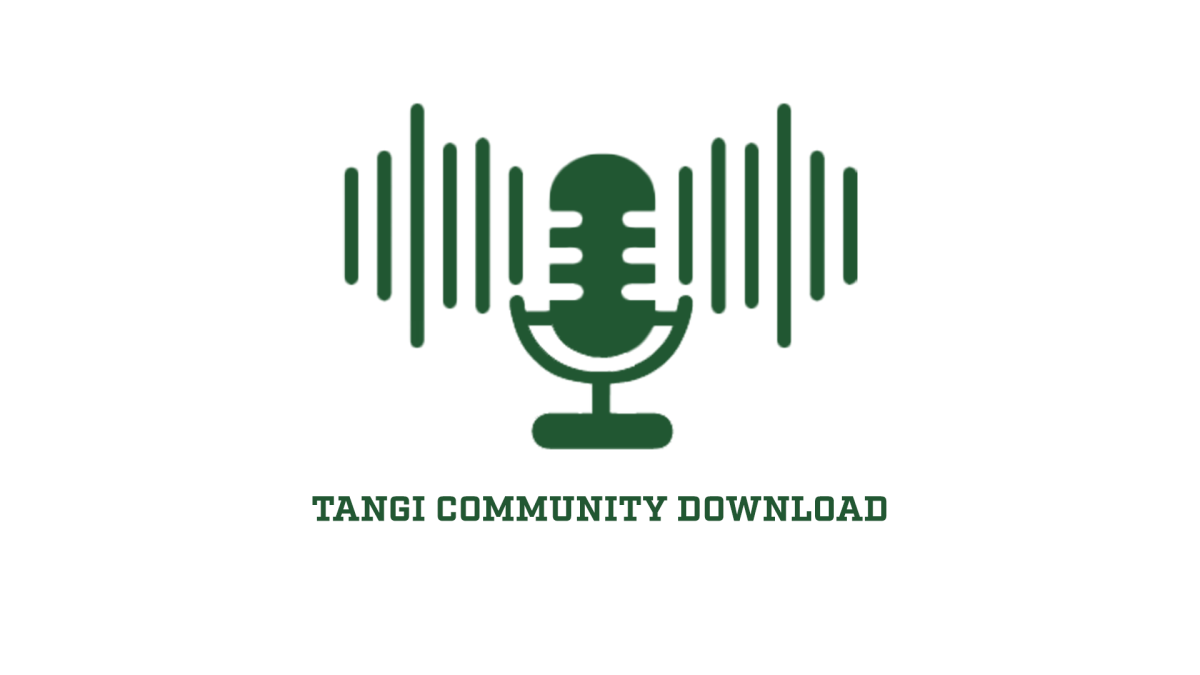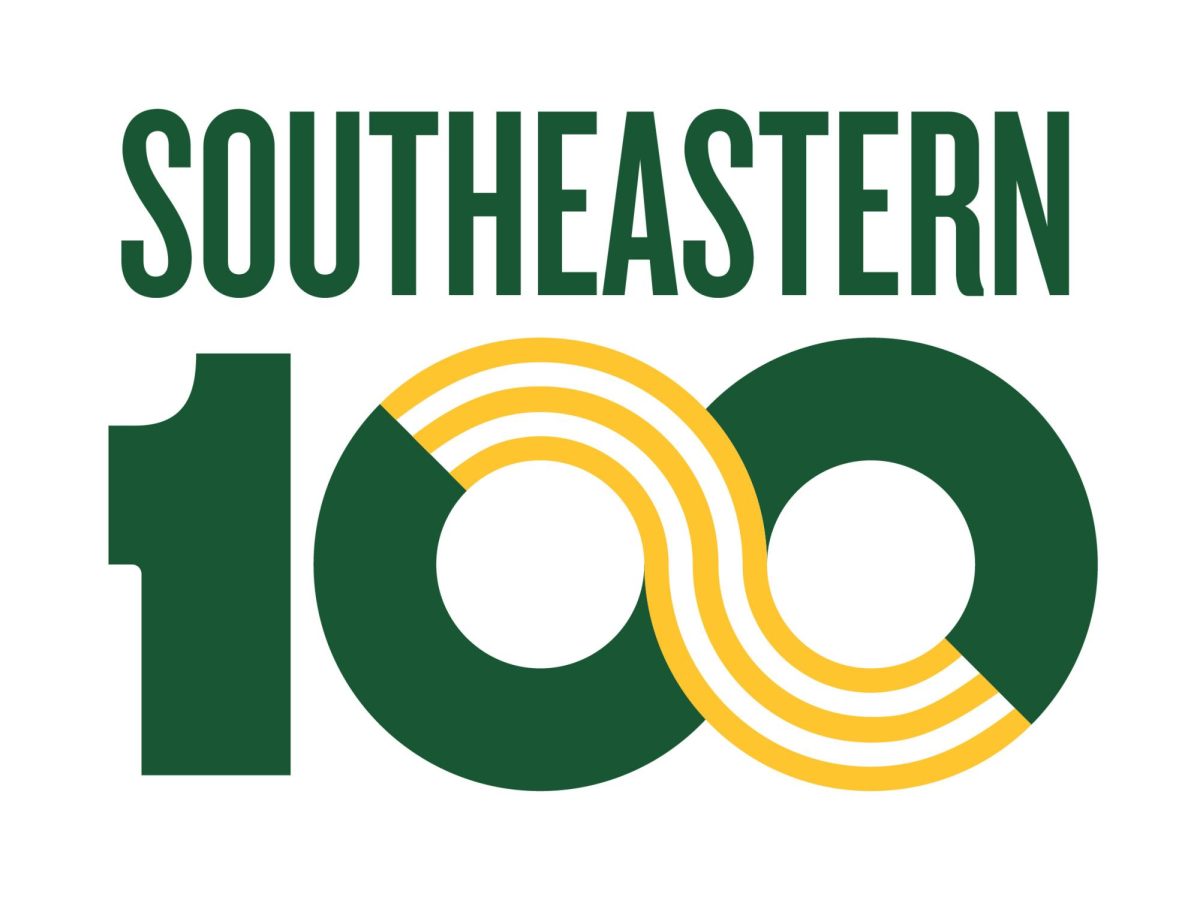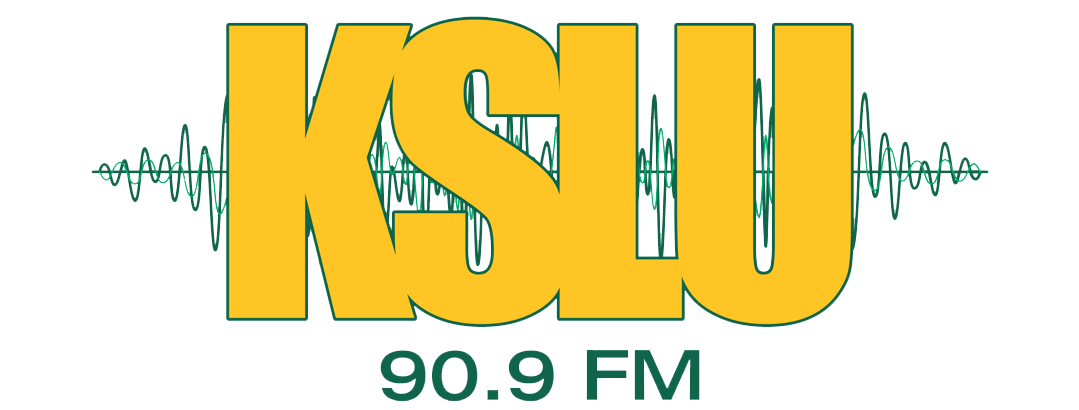Dr. Amber Narro visits with Hammond radio legend Mary Pirosko, reflecting on Mary’s career and her role in mentoring Robin Roberts during her time at Southeastern Louisiana University.
00:00:01.840 –> 00:00:20.765
Good day, this is Amber Narro on KSLUs 90 point 9 FM The Lion. I am here with Mary Pirosko. Mary is a community legend as well as just an awesome friend and a person who we all want to stay in touch with for sure but welcome Ms. Mary I’m so glad to have you.
00:00:21.165 –> 00:00:25.165
Thank you with an introduction like that maybe I should quit now while I’m ahead.
00:00:25.405 –> 00:01:04.030
No indeed, no indeed I need your voice here because we are targeting today’s interview to someone very special at Southeastern who has made a wonderful heartfelt gift to our community and especially to Southeastern Louisiana University with the donation of the monies that got us D. Vickers Hall renovated and ready for students that started taking classes there this fall. So we’re going to talk a lot about Ms. Robin Roberts today, but we’re going to talk a little bit about Ms. Mary Pirosko as well and see what you’ve been up to while you’ve been way up there away from us.
00:01:04.270 –> 00:01:32.710
A few years ago you moved away from the area going to be with your family, but had spent many, many, many years here in and around Southeastern particularly on KSLU doing news as well as news for other stations so I’m going to let you remind us a little bit about your history here and then I’m going ask you how you ran into Ms. Robin Robertson and get you to tell us a little bit about her and her early days here at Southeastern. Sure. It’s really great
00:01:32.710 –> 00:01:45.535
to see you, Amber. You’re looking really good. Thanks. I lived in first Robert and then Hammond for almost fifty years. Although I think I was still considered a Yankee even after that.
00:01:48.015 –> 00:02:22.825
I found Hammond to be I don’t if I had to choose the perfect place to live, I think it’s Hammond. And Southeastern Louisiana University certainly contributes a lot to making Hammond such a wonderful place to live. As you know, besides having a son and a daughter, I had a special son, Steven. And he was probably very much handicapped. I mean, more handicapped than most people who have problems.
00:02:23.630 –> 00:02:51.955
And I only just found welcome in Hammond all the time. Was amazing because, you know, the state school was there, so some people I think were used to seeing people with disabilities. But when we started having community services, and when I started taking Stephen to Holy Ghost and then to St. Albert’s, the welcome was just unbelievable. The kindness, the acceptance, the generosity, it’s a wonderful place to live.
00:02:51.955 –> 00:03:14.485
And I’m up here in Newport News, Virginia, which has its own history and is very nice and has its own association for retarded citizens that I help support up here too. Thank you. There’s no place in the world like him in America. I really do believe that. And Southeastern again is, I got my master’s at Southeastern.
00:03:14.485 –> 00:03:31.150
So, certainly attended there. Both my other children attended there. My son-in-law attended there. My granddaughter and grandson-in-law got their degrees there. I mean, the whole family went to Southeastern and we all loved it.
00:03:31.390 –> 00:03:58.150
Well, tell me about your association with KSLU because you have a deep rooted history in radio here in Hammond America but specifically at Southeastern as well as North Shore Broadcasting. Having been on both stations myself, I can say that that is a wonderful way to be introduced to the entire community is through these two radio stations.
00:03:58.230 –> 00:04:13.325
It is indeed. I went to WFPR, is where I applied many, many, many years ago. I worked there for over twenty years. And I had radio in my family history.
00:04:13.325 –> 00:04:34.855
My uncle had a radio show when I was growing up, and everybody listened to that. He played music and told stories and things. And so, radio was a possibility for me. It was in my heritage sense. In And I had been working for the Sun newspaper and I thought I could use a change.
00:04:34.855 –> 00:04:49.330
And so, I applied at WFPR and Mrs. Chauvin interviewed me and Mr. Chauvin interviewed me and they accepted me. And I had many, many wonderful years there with the whole Chauvin family. It was great.
00:04:49.810 –> 00:05:11.985
When I retired from Southeastern, I started working for nonprofits. I worked for spouse abuse and CASA, and then I worked for options. But I got approached from Southeastern and asked if I would like to do the morning news and have a talk show. I find it very hard to say no to that question. So, I said, okay.
00:05:12.510 –> 00:05:16.270
So much fun, isn’t it? I mean, this is absolutely. It is.
00:05:16.270 –> 00:05:34.155
And I really was looking forward to working with students who were still interested in radio broadcasting. You know, TV is great and everybody likes TV and there’s so many other social media now, but my heart’s still with radio. I do. I love it. I love radio.
00:05:35.755 –> 00:05:50.860
When you’re listening to radio, you can imagine the world. And you don’t get that with visual media because it imagines it for you. Right. See how people look. But with radio, you imagine how people look.
00:05:50.860 –> 00:06:02.035
I know people used to come up to me and say, I thought you were younger. I thought you had black hair. I thought you were taller, you know, but they could imagine me.
00:06:02.035 –> 00:06:05.155
I like I look.
00:06:06.675 –> 00:06:11.040
They could imagine anything they wanted and it was great. And it If was so
00:06:12.640 –> 00:06:21.680
somebody’s imagining me right now and you haven’t met me before, would like to be tall in your imagination. That’s what I would like to be. So anything else is extra, but tall would be great.
00:06:22.095 –> 00:06:25.455
Tall is nice. I keep getting shorter every year, so I can tell
00:06:25.455 –> 00:06:28.655
you tall is nice. Absolutely.
00:06:28.815 –> 00:06:50.800
So, going back to my first days with WFPR, I started out as a reporter and they had a little fifteen minute interview show that I recorded. And then I had another one called The University and You. And it was great. I got to interview everyone from Southeastern. So I was connected with Southeastern from the very first days in radio.
00:06:51.485 –> 00:07:21.095
And then I became the news director there at WFPR, and then we added WHMD FM station. So I was working with both stations then. And Steven says it was him and Tommy says it was him and I don’t remember, but one of them came in and said, we just hired a girl from Southeastern to be a reporter or work on sports. And they both take credit for that. And maybe they were both involved.
00:07:21.335 –> 00:07:48.605
But it was Robin and she would pedal her bicycle to the radio station. And she started out as my reporter and she would go cover different things for me. But the opportunity came up for her to do sports and her heart then was with sports. She was so active in sports at Southeastern, basketball, her career is legend there too. And so she kind of moved over to sports.
00:07:48.605 –> 00:08:14.315
So I’d do the news and then she’d do the sports and then I’d do the weather. And it was such a pleasure to meet this young woman who had a very sense of presence. Now, I know Robin grew up in other countries. I think she spent a lot of time in Turkey when her dad was in the air force. And she had this presence about her that she knew what she could do.
00:08:14.315 –> 00:08:33.300
She had a sense of accomplishment about her. And she was always willing to learn, but she was always very qualified from the beginning. She’s just was so competent and so talented from the very beginning. There wasn’t much to teach her. And she always gives me far more credit than I deserve.
00:08:34.020 –> 00:08:48.925
But she was, again, willing to take any advice any of us offered her. But it was a joy working with Robin. I’ve always liked working with young people. And of course, people now for me are in their 60s and 70s, they’re young.
00:08:49.085 –> 00:08:54.440
That’s awesome. That’s great. That’s great news for me.
00:08:54.440 –> 00:09:19.725
Yeah. But I’ve always enjoyed working with young people. Think the world would be better off if we had an age limit in politics and in so many other things where you couldn’t be in politics once you were over 50. Oh. You had to be young and have your whole life ahead of you and wanna work for improvement and just be scrambling for it.
00:09:19.725 –> 00:09:27.780
That’s that’s my philosophy. So, yeah. So, that was my early experience with Robin. It’s always been pleasant.
00:09:27.780 –> 00:10:20.505
It’s always been a pleasure. He’s always been a joy. Indeed. Now, you also spent some time doing KSLU news for a long time back to us, so for those who, we still have students who are very much interested in radio, which is a joy to my heart, and I heard, I was listening to a podcast, I do podcasts a lot, Ms. Mary now, so I was listening to a podcast the other day on my loft and one of the things I heard was the podcasters who also has a show, mine is also on the radio, you know, my podcast is on the podcast, it’s also on radio, his as well, and he was saying that he had his child ask him to turn the playlist off and just listen to radio the other day because, and his child said it’s because you’re surprised or it’s, it’s, you know, you’re not, you’re not listening to the same thing over and over and over again.
00:10:20.900 –> 00:10:44.335
And I think that that’s what the beauty of radio is, is that you not only get your local news like you’re going to talk about in just a second, but also the surprises that come along with it And you can often use it obviously in times of emergency and things like that, but you reported specifically for the news here on KSLU. Can you tell me a little bit about that?
00:10:44.735 –> 00:11:00.250
Yeah, my love was news. I enjoyed all the interview programs too, for sure. But yeah, after I left WFPR, I went to the nonprofits, and then I got approached to come to KSLU. And it was the same thing. It was the morning show.
00:11:01.545 –> 00:11:25.180
I’ve got up at 04:00 for so many years. I’m still kinda getting up that early. But, yeah, I came in and and did the morning news and weather. And then I had an a half hour interview show after that at KSLU that I I really enjoyed as well. But the news, the local news is so important because you don’t get it anywhere else.
00:11:25.180 –> 00:11:49.420
You really don’t. And I I remember one particular time we were preparing for hurricane, and it was really coming in our direction. I mean, university direction. It was really headed for us. And I got a call from England to give a report on where the hurricane was going and what things were like here.
00:11:49.420 –> 00:12:22.900
So, I gave a very brief description. I think it had hit We’d lost power in one of the buildings. There was a little bit of damage at one of the buildings. This was years ago. And so I gave that that little report and the next Sunday, our priest from the altar said, you know, I was in Ireland just relaxing in front of a nice turf fire, listening to Irish radio, and here comes a report from Mary Pirosko from KSLU.
00:12:23.220 –> 00:12:53.290
He said, You can’t get away from her. That’s the thing with radio. You can phone it in if you have to. I remember when we had to unscrew the mouthpiece of the radio and of the telephone and attach alligator clips to it and talk through that microphone attached to the alligator clips attached to the telephone. But now you can do so much with computers and have radio everywhere.
00:12:53.290 –> 00:13:32.405
And it’s wonderful. It’s sports, it’s music, it’s talk, it’s philosophy, it’s and the news before anyone else gets it, you’ve got it on radio. I grew up I I was one of those really young people who grew up seeing photographs and hearing the radio broadcast of the wreckage of the Hindenburg. And the people were still talking about the War of the Worlds And everything that was radio, just was. And it was all imaginative.
00:13:32.405 –> 00:14:04.865
And on Saturday mornings, was Let’s Pretend and all the children’s theater, the Lux Radio Theater of the Air, and the Armstrong Theater, and the DuPont Theater, and the Judy Garland Show, and the Eddie Cantor Show, and the Bob Hope Show. It’s all on radio. So, that’s where my heart was. And I think Robin’s is there too. I mean, I know she’s done so much with TV and has her own production company, but I think her heart is still with radio when you it start is.
00:14:04.865 –> 00:14:06.465
Just, it never goes away.
00:14:06.970 –> 00:14:19.530
I agree. I agree. And I’ll put that on her not even ever having talked to her about that. But because of my deep just love for the radio. I can remember when I was a teenager even saying that I want to be on the radio one day.
00:14:19.635 –> 00:15:05.840
You know, it just it and it grabs you and it takes you and it keeps you. So it’s certainly not, a medium that you can just leave. And that said, I also think that being in radio really challenges you a way in a way that visual communication can’t, right? Because you have to tell the story and we are in tune doing interviews and talking, having conversations with people that if we hear something that’s only visual that we’ll make sure that we explain it, right? So it really kind of trains our brains to tell and the whole not depend on the picture that’s worth a thousand words because we don’t have it, You know, so we’ve got to tell the story.
00:15:06.640 –> 00:15:31.330
And you can because you’re trained to observe. I’ve never been one of those radio journalists who go up to people in tragedy and say, you know, how does this affect you? That wasn’t me. But enjoyed talking to people about their accomplishments, and their dreams, and their philosophy. I got a lot of people from Southeastern.
00:15:31.330 –> 00:15:43.890
The faculty at Southeastern has always been amazing. I know it’s amazing now, but it’s always been amazing. And I think I interviewed almost every one of them. And each one taught me something. It was like a private education.
00:15:43.890 –> 00:16:00.830
I loved it. So it was great doing that. But also you can have fun with radio. I know Johnny Chauvin and I used to say, well, Johnny, you really shouldn’t be broadcasting in your bathrobe. And he’d say, well, you have on a bikini.
00:16:01.150 –> 00:16:37.080
And nobody really knew what we looked like. We’re in our regular blue jeans and flannel shirts, you can create pictures on the radio and tell stories and really be I remember interviewing a lady in Amy who had just turned 100 years old. And I’m there with my little tape recorder and microphone, and George Perkins took me up there. I don’t know if you remember George Perkins, but he was one of the founders of the African American Museum, and he worked as a legislator. He was an amazing man.
00:16:38.065 –> 00:17:07.465
And he knocked on the door and this woman came running out of the door chasing this dog and hitting him with a broom. And we know, he looked at me and I looked at him and George said, that’s the 100 year old lady there. Oh, wow. And she told a story about having to climb a tree a couple of nights ago to get a possum out of it, you know, and you can just create these visuals on radio that are better than what you really can see.
00:17:07.705 –> 00:18:02.110
Absolutely, because you have to, you know. Probably why Robin Roberts is the storyteller that she is today because she got her started on radio because she could really kind of magnify that story in a way that goes past both the ears and the eyes and really gets to the heart you know. I’ve read Everybody’s Got Something and the heartstrings that she pulls not just because of her experience going through her health challenges but also the appreciation that she had for the world around her who just really embraced her and showed her love from every level that she had walked in her life. And it just, she has an appreciation for the story. And I’d like to think that those of us who are in radio understand that appreciation for the story that she has.
00:18:02.795 –> 00:18:15.755
I think so. I know I got mine from my grandmother. When I was a little kid, my favorite phrase was, tell me a story. Tell me what it was like when you were a little girl. Tell me what this is like or that.
00:18:15.755 –> 00:18:36.855
And she’d tell me stories about Ireland and about living on a farm and so many things. And Robin’s parents were amazing. I had the privilege of meeting them. And her dad was a Tuskegee Airman, as you know. And her mom was very active in education in Mississippi.
00:18:37.015 –> 00:18:57.860
She was a leader in education. And one of her sisters had a story, know, Sally Ann Roberts was on WWL. So, the whole family, I know her brother Butch was in sports. He was still a coach in, I think, California. But the whole family were storytellers.
00:18:57.860 –> 00:19:18.080
They were wonderful storytellers. And Robin always was. I mean, just from talking to her, you can tell when you’re talking to someone that they’re really they’re not just giving you six declarative sentences. You know, they’re using adjectives and adverbs and creating a vision and a picture. And Robin’s always been like that too.
00:19:18.080 –> 00:19:50.230
And she’s got such a big heart. Think Robin met my son Steven a couple of times, maybe four or five times before she became famous. And every time she comes to Hammond, she comes to see Stephen. And she has donated to Options the way she’s donated to Southeastern because of Stephen, because he touched her heart. And she had a heart that allows itself to be touched.
00:19:51.030 –> 00:20:03.825
She has a heart that is open and kind and generous. And I found her whole family to be that way. Sallie Anne’s like that, her mother was like that, her dad was a sweet
00:20:03.825 –> 00:21:00.595
guy. And I think you and I are just so privileged to know a beautiful soul like Robin Roberts. Indeed now, and you certainly have had the history and the appreciation for Robin that probably goes, that really starts at her kind of roots as a journalist right and I am super jealous of that because I would have loved to watch her and see her grow through every path that you were so privileged to see Ms. Mary. She all, you talked about Sallie Anne Roberts, one of the things that I remember when I was working with Options with you and Robin actually showed up at one of our telethons and made a donation while she was there for certain and we were very appreciative of that, but she appreciated that the people with disabilities were asking her about her sister,
00:21:00.755 –> 00:21:05.475
Sally. Yes, she was Sally Ann Roberts’ sister, yes.
00:21:05.955 –> 00:21:50.830
Yes, they thought that she was Sally Ann Roberts’ sister and they were asking her about Sally Ann Roberts and she appreciated that moment to be able to share the love that she had for her sister, later her bone marrow donor, to in that moment just appreciate her sister’s fame in this area as being a reporter for WWL for so long and I can remember after Hurricane Katrina the first I mean it really it just chokes me up even now but the first voice that I heard that I was so appreciative of other than my family’s was Sallie Anne Roberts because it was like okay I hear it I’m gonna be okay I’m here I’m hearing her I’m gonna be okay you know so I appreciate it that’s
00:21:50.830 –> 00:21:52.510
a beautiful story that’s great
00:21:52.895 –> 00:22:07.320
Yeah, yeah, and another thing with Sallie Anne is that she is a Southern, she’s Southern Miss, right? Southern Miss girl, and at my graduation from Southern Miss she spoke and she made us sing This Little Light of Mine. Isn’t
00:22:07.160 –> 00:22:12.200
She’s that a lovely person too. Yeah.
00:22:12.200 –> 00:22:15.960
Indeed, indeed. When Robin
00:22:15.960 –> 00:22:19.240
was so ill, both her sisters were by her side.
00:22:19.720 –> 00:22:21.320
Dorothy is the other one, correct?
00:22:21.320 –> 00:22:43.240
Yes, yes. And they were both there singing songs, singing the old hymns. And they never left her alone. And I think it was them holding onto her that kept her with us, because she was very, very, very ill. And I think she just almost reached the limit.
00:22:43.880 –> 00:23:14.610
But I think if now, I hate to tell Robin stories, because I don’t want to get them wrong. But if I’m not wrong, she said that she was ready to give up because she was in so much pain and so weak. And she heard her mother’s voice calling her. And this was after her mother had passed and she wanted to go to her mother. But her sisters were there and wouldn’t let her leave.
00:23:17.090 –> 00:23:37.230
And that’s that’s a strong bond. Never had a sister or a brother, and I envy Robin that. She’s got a great family and she’s a wonderful, wonderful person. She and Amber have such a lovely family together. I forget their dog’s name, but he’s a
00:23:37.230 –> 00:23:49.935
very fortunate dog. Absolutely, absolutely. So, now tell me, she’s donated this money for Dee Vickers Hall. Dee Vickers is stunning, Ms. Mary.
00:23:49.935 –> 00:23:53.855
I know you haven’t seen it yet because you’re way up there. We’re gonna have to get you back home.
00:23:53.855 –> 00:23:58.415
Virginia still considers itself in the South. That’s fun. Way up there.
00:23:59.340 –> 00:24:04.060
Yeah, I’m not talking about southern versus north. I’m saying you’re a far way away from me.
00:24:04.060 –> 00:24:05.820
Right? A thousand miles away from you.
00:24:05.820 –> 00:24:17.135
Yes. Almost exactly. That’s a far way. So you’re way up there, right? You’re not a northerner, but you’re way up there and you haven’t gotten an opportunity to see D.
00:24:17.135 –> 00:24:38.570
Bickers Hall yet. It is stunning. The windows are gorgeous. The views of the library, of Student Union, the grass and the greenery around it, they put so much thought into this building and it is going to be unbelievable for years and years and decades and decades.
00:24:38.570 –> 00:24:39.370
I can’t wait to
00:24:39.370 –> 00:24:51.985
see it. It’s unbelievable. There is a brand new TV studio. KSLU is going have a location there. We also have tons of classrooms, tons of technology.
00:24:52.465 –> 00:25:05.440
It’s gorgeous. The theater space is beautiful. There’s a black box theater also off to the side so that we didn’t forget about our theater folks and our English folks and foreign language people who we share that space with. Right. The communication.
00:25:06.080 –> 00:25:26.240
But she really, she was the spearhead for that building becoming what it is right now and really kind of, putting her heart into it and her name being on the side of that building now is pretty impressive and it’s so well deserved. Well she was a reporter at KSLU too Indeed.
00:25:26.240 –> 00:26:06.090
And did news at KSLU and before she came to WFPR. So that’s where she got some of her, I think, confidence to come to a commercial station. And public radio like KSLU is so important in The United States Of America. And I know the current administration has been cutting a lot of funding for it, and I’m not gonna get into politics, but public radio must be preserved. So, if any of you listen there, to any public radio, donate now because public radio is so important.
00:26:06.330 –> 00:26:39.525
We can’t lose it. If if things continue as they are going right now, we may lose classical music in this country because it’s only played on public radio. And if public radio has to decide between classical music and its other programs, I think that decision is gonna be the other programs. And we’re gonna lose classical music. And there are times in your life and my life and everybody’s life when you just need a little Bach and Beethoven and Mozart, you know, you just do.
00:26:40.325 –> 00:26:45.125
That’s the only place to So, find public radio, KSLU, we got to
00:26:45.125 –> 00:26:58.420
keep them. Indeed, indeed. And the local stories, you know, and it’s not public radio isn’t just NPR. It is your local radio. Is your, it is your, it’s your people.
00:26:58.500 –> 00:27:52.490
Is, it’s the ties that bind us and you know, this show for example is tasked with making sure that we tell those community stories. And I think that even those who are international news, professionals will tell you today that the heart of everything that they do starts with local and that we’ve got to be able to bring those local. We’ve got to be able to work with our local reporters and our local news stations to understand how these big national and international things can even impact us at the local level. So we all work really tightly together in this big system of the media to make sure that we have all the stories everywhere. Preserving history, you know, on KSLU and on North Shore Broadcasting, both, I interviewed so many historians
00:27:53.015 –> 00:28:01.335
who told those stories of the early days of the university. I know Southeastern is going to be celebrating a 100 years soon. I mean, can
00:28:01.335 –> 00:28:11.140
you Yeah, imagine we just had our birthday. We just had our birthday in September and this is our like centennial celebration culmination week with them.
00:28:11.140 –> 00:28:11.940
All right.
00:28:12.020 –> 00:28:12.580
So
00:28:12.580 –> 00:28:29.185
yes. And I got all the history of Hammond and Ponchachula and Independence and Amy and those are the local stories that we need to have. Plus local government is so important and you only hear about that on local radio. Indeed.
00:28:29.825 –> 00:28:34.145
Now as we’re going out, because we’re hitting time here, Ms. Mary, I do want to give you a
00:28:34.145 –> 00:28:49.010
text to give us a little thank you letter to Robin and to what she has done here at southeastern in your voice because I think that she would love hearing it from you more than just about anybody on the planet
00:28:50.035 –> 00:29:30.355
Well, I always tell Robin how wonderful she is, even though she doesn’t like hearing it. But it has been one of the most advantageous things and one of the most life changing things for me to have met Robin Roberts. Because not only did I meet a young woman who became an international journalist, I met a young woman who always had an open heart and an open mind and was filled with kindness and appreciation. And a lot of people, you know, when they get to be famous, they kind of lose some of that. And Robin never has.
00:29:30.675 –> 00:29:46.620
Her generosity and her kindness are her hallmarks. And Robin, I can’t thank you enough for being the person that you are. You made me a better person just knowing you. And I wish you the very best of everything for one hundred thousand years.
00:29:47.925 –> 00:30:00.245
Thank you, Ms. Mary. I appreciate you coming and sharing that with us today with tears in your eyes as you talk about sweet Robin Roberts and how wonderful she is and has been to this community. Thank you so much for joining us today.
00:30:00.780 –> 00:30:04.300
Thank you, Amber. It’s been great to see you. You as well.
00:30:04.620 –> 00:30:37.260
And thank you for listening here on KSLUs 90 point 0 FM, The Lion. I’ve been at the Lion’s Roundtable with Mary Pirosko today, a reporter here at KSLU in her first years as a reporter here in Hammond America and also on the radio even now as she is helping those young people in their 50s and 60s stay active in Virginia. Thank you for that Ms. Mary. We appreciate you. Talk to you very soon. Join us again here on Thursdays and Fridays at 09:00. We’ll be doing the lines roundtable. I’m Amber Narrow.
00:30:37.260 –> 00:30:38.220
Y’all have a great day.

